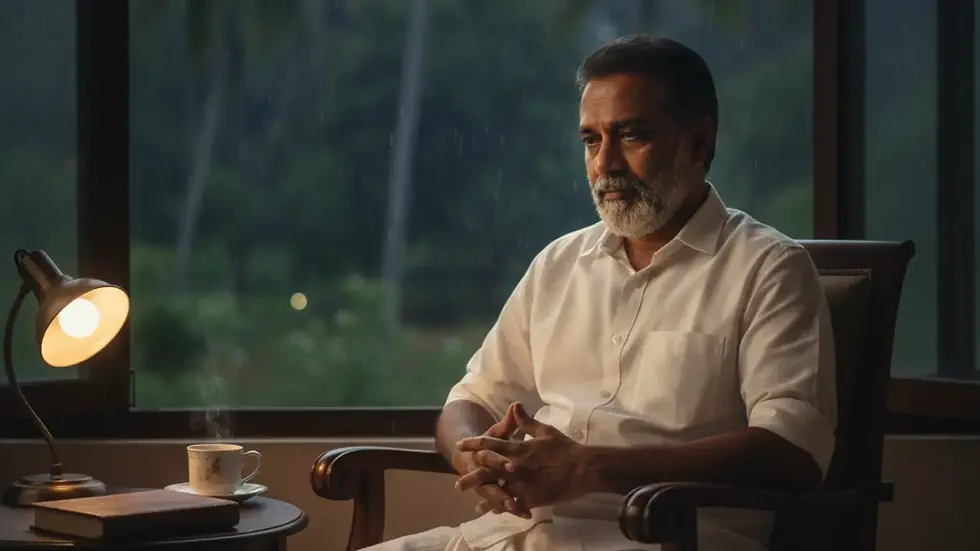Mental health of Malayalis in the US
- Ann Maria Thomson

- Feb 6, 2025
- 4 min read
The US Census Bureau in 2023 documented approximately 4.8 million Asian Indians in the United States of America. While exact numbers vary, estimates suggest around 146,000 Malayalis reside in the U.S., concentrating in the New York tri-state area and other metropolitan regions like Chicago and San Francisco. These numbers are likely to be more with the current increase rate in international students. Mental health issues in the community are widespread. But they are often underreported and poorly understood, leading to significant gaps in research and support services.

Factors Affecting Mental Health of Malayalis in US
1.Cultural Adjustment: Moving to a new country and adjusting to a new culture is often the hard part for anyone. The transition to a different cultural environment, entirely or partially different from your own can lead to feelings of isolation or alienation.
2.Family Responsibilities: Balancing family obligations and staying connected with the family back at home can be overwhelming.
3.Work Stress: Navigating workplace dynamics in a foreign country causes work-related stress and pressure.

4.Social Support: Limited social networks can exacerbate feelings of loneliness and depression.
5.Cultural Stigma: There is a huge stigma surrounding mental illness particularly among South Asians. This often leads to reluctance to seek help.
A study indicated that only 2.8% of Asian Indians utilized mental health services, the lowest among Asian groups in the U.S., despite a notable increase in psychological distress from 2006 to 2018.
Common Mental Health Issues
1.Anxiety and Mood Disorders: Approximately 1 in 5 South Asians, including Asian Indians, report experiencing a mood or anxiety disorder at some point in their lives. The cultural stigma prevents them from seeking the necessary help that they need. Many individuals feel that discussing mental health problems is a taboo or something to be ashamed of, leading them to avoid professional care in favor of support from family and friends.
2.Youth Mental Health: South Asian youth are particularly vulnerable, with higher rates of suicidal thoughts and behaviors compared to other minority groups. Academic pressure, relationship issues, and cultural expectations, all contribute to elevated levels of suicidal ideation and possible attempts. The pressure to excel academically can lead to heightened stress levels, which may manifest as anxiety disorders. Many Indian students who leave to pursue higher education in the US also experience anxiety and depressive disorders. Academic stress, financial burdens, family obligations, homesickness, and cultural adjustment contribute to heightened mental health issues.
3.Post-Traumatic Stress Disorder (PTSD): Post Traumatic Stress Disorder has also been found to be quite common in the Asian Indian population of the US. This disorder has been attributed to the traumatic experiences concerning immigration. This is especially prevalent among those who have faced significant challenges before or during their migration to the U.S.

Mental Health Support Systems for Malayalis in US
Counseling Services: Organizations like Koott provide online counseling for Malayalis in U.S., addressing issues such as anxiety, depression, and other mental health problems. These services facilitate communication in Malayalam or English, making it easier for students to express their concerns.
Support Groups: Establishing peer support networks in universities or engaging in community groups/associations can help mitigate feelings of isolation. Peer support networks provide a platform for sharing experiences and coping strategies among students facing similar challenges. Malayali associations can help them stay rooted in their culture as well as strengthen communal bonds. Some of them include:
I-AM SHAKTI: This support group, founded by Dhivya Sridar focuses on mental health issues among Indian Americans. It provides a platform for individuals to share their experiences and seek help. It builds a supportive community for those dealing with mental health challenges, including students.
Counselors Helping South Asian Indians (CHAI): CHAI offers a holistic approach to mental health services tailored to South Asians, including Malayalis. This is based in Washington DC. They provide counseling and resources that address the unique cultural needs of the community.
Campus Resources: Many universities offer mental health services specifically designed for international students. These resources often include counseling, workshops on stress management, and cultural adjustment programs which helps them to be mentally fit in a new environment.
Migrant Malayalis and Indian students in the U.S. face significant mental health challenges stemming from cultural differences, academic pressures, and social isolation. Culturally competent support systems and reducing the stigma associated with mental health care are essential to cultivating a mentally healthy migrant Indian population. With an increase in the awareness of mental health, more and more people are breaking barriers and are willing to seek help. While offline or traditional counseling is effective for many individuals, many individuals especially youngsters prefer online counseling to support their mental health due to its accessibility, affordability, and flexibility.
Koott offers quality services to support our fellow Malayalis in the US. Our team of experts include:
Aswathi Raman: With over 7 years of experience, Aswathi Raman is a consultant psychologist and counselor. She holds an M.Phil in General Psychology and is currently a Ph.D. candidate at Christ University, Bengaluru. She provides counseling services in Malayalam, English, and Hindi.
Aswathy Sampath: A registered clinical psychologist with over 5 years of experience providing therapy. She holds an M.Phil in Clinical Psychology from Manipal University, Manipal, and offers services in Malayalam, English, Kannada, and Tamil.
Self-care means giving the world the best of you instead of what is left of you- Katie Reed.
Koott helps you give the world the best of you.
Koott helps you discover the best of you.







Comments